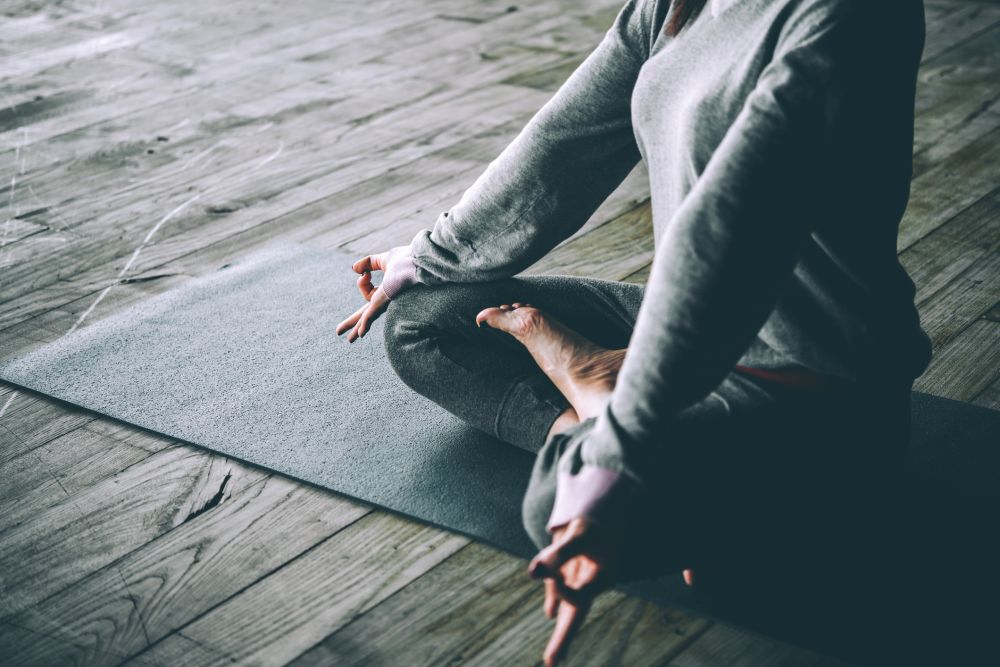Want to be a faster runner? Train your brain
How to work on your mental game, with Dr. Karen McNeill

You’ve likely heard your coaches or running buddies say that running is all mental. Some may have even assigned a percentage to it, arguing that success in the sport is 80 or 90 per cent up to your mind. Of course, it’s impossible to actually determine how much your mental game truly affects your running performance, but most runners will agree their heads will often dictate what their bodies can do. Despite this, we spend far more time training our bodies than our brains. We spoke with Dr. Karen MacNeill, the lead mental performance and mental health consultant for the Canadian Olympic Committee and owner of MacNeill Performance Consulting on the importance of brain training to realize your maximum athletic potential.

RELATED: Improving your mental health through running: part 2
MacNeill explains there are multiple factors that allow you to perform at your very best. You can train your form and technique, you can train the strength, power and endurance of your body, and you can train your mind. In order to achieve your maximum potential, she says you need to have full capacity in all those areas, but working on your mental game isn’t as straightforward.
“Physically, we can do a VO2 max test, or we can do a 5K run and see our improvements,” explains MacNeill, “but mentally it’s a little bit more intangible.”
Despite this, your mental game is arguably the most important aspect of your training. This is because in order to use all your skill and fitness and perform at your best, you need to have the mental fitness required in order to produce that skill. For example, if you’re really nervous before a race, you might be tight and tense, which may prevent you from getting the most efficient use out of your muscles. If you’re distracted or lacking confidence, you might not commit yourself fully to getting the most out of your body in a run or race.
“Training the mind allows you to be able to use all of you on a consistent basis,” says MacNeill.

How can runners improve their mental game?
MacNeill says the biggest piece is mindfulness, which means having awareness of the present moment in an open and curious way. This will allow you to acknowledge the stress and anxiety you’re feeling before a run or race. You also need to have clarity on why you’re running in the first place. Is it to prove your worth, or is it to simply beat your time and challenge yourself? Once you have those two things at the front of your mind, you can challenge those fears and calm yourself down. Being in tune with what motivates you and what fears you have makes it easier to work on things like poise, focus and confidence.
“We’ve got to realize that the reason we’re getting anxious is because we care,” she explains. “We want to do well, and there’s no certainty of that.”

Make mindfulness a part of your training plan
Just like there is no magic pill to improving your physical performance, it takes time and work to improve your mental game. MacNeill encourages all runners to include a daily mindfulness practice in their training plans.
“Mindfulness helps to cultivate self-awareness and separate that reaction from response,” she says. “It also helps us with attention and being present-moment focused, in addition to regulating our emotions.”
There are many apps available to help you create a daily mindfulness practice, and MacNeill suggests taking five minutes out of your run to focus on being as present as you possibly can. She also recommends that runners set intentions for themselves before every run and workout so you know exactly what you’re trying to get out of that session. It could be physical (I want to run at 80 per cent capacity for ‘X’ number of minutes) or mental (I want to be as focused and present as I can throughout the entire run). Additionally, after your run, you should always ask yourself what went well and why. This will help you identify the strengths and resources you used that day, so you can employ them again on future runs. Finally, she says runners need to separate what they do from who they are. Running might be important to you, but it doesn’t reflect your importance or value.
For any runners who are having a particularly difficult time managing their anxiety or improving their mental game, MacNeill recommends making an appointment with a sports psychologist. To find one near you, check out the Canadian Sport Psychology Association for practitioners in your area.


